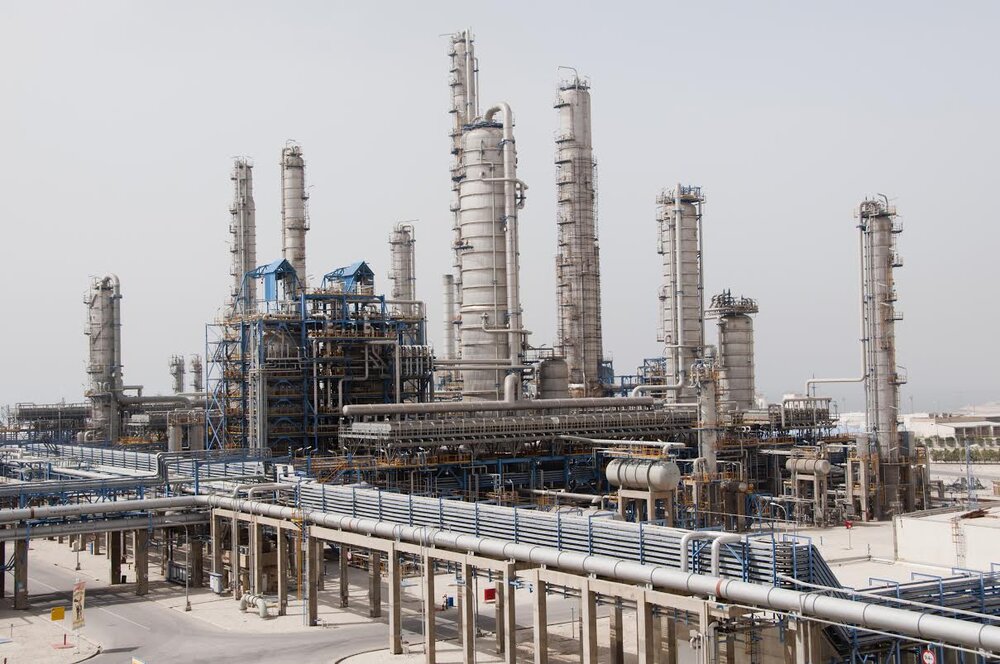Iran faces 700,000-ton annual shortage of propylene

TEHRAN- Iran has been facing a shortage of propylene for years. The country’s propylene production in the Iranian calendar year 1404 (March 2025-March 2026) will be four percent of its total petrochemical production.
It is while this figure will be 18 percent worldwide, 21 percent in China, 17 percent in the United States, and 16 percent in Saudi Arabia.
Currently, with the production of 985,000 tons of propylene by Iranian refineries and petrochemical plants, there is a shortage of 175,000 tons of this product in the country, Shana has reported.
In the calendar year of 1404, the amount of propylene production will reach 1.95 million tons, while Iran will be facing an annual shortage of about 700,000 tons of the item.
In order to tackle this projected shortage, the first step is to launch projects with methanol and propylene output.
For production of at least 3 to 3.5 million tons of propylene in Iran, two propylene lines have been considered; First, the southern line to the center, from Assaluyeh to Marvdasht, which will be developed by the National Petrochemical Company.
The methanol surplus in Assaluyeh will be used to produce propylene to be injected into the 430-km pipeline to Marvdasht to be stored in a storage hub.
Secondly, the Alborz pipeline, where propylene will be produced from natural gas in Amirabad and transferred from Amirabad-Neka to Damghan, to be distributed later in the provinces of North Khorasan, Khorasan Razavi, South Khorasan, Semnan and surrounding areas.
On the other hand, the GTPP project of Islamabad West is being implemented by the National Petrochemical Company in western Iran in order to develop the propylene production chain.
All of these projects will be GTPP (gas to propylene) or MTP (methanol to propylene), both of which being developed for completion of the propylene production chain and eliminate the country's need for imports.
The technical savvy for building these plants will be provided by the Petrochemical Research and Technology Company (PRTC).
Propylene is a colorless fuel gas with a naturally pungent smell. Although similar to propane, it has a double bond which gives it a combustion advantage i.e. it burns hotter. This fuel gas is extremely flammable and non-toxic. Propylene is obtained during the refining of gasoline
As the second-biggest source of revenue for Iran, the petrochemical industry is one of the most important pillars of the country’s resilient economy and one of the main suppliers of foreign currency especially the euro for the country.
The industry became more significant since the re-imposition of U.S. sanctions on the country’s oil industry and since then, the government has been taking serious measures to expand the industry and move toward self-sufficiency.
Cooperating with capable domestic knowledge-based companies and startups is one of the very fruitful steps that the oil ministry has taken in its efforts to reach complete independence from the foreign resources for meeting its equipment needs.
In this regard, the country’s Petrochemical Research and Technology Company (PRTC) has played a very significant role in collaborating with such companies for working on innovative research projects for producing various equipment and base-products needed in the industry.
PRTC’s Managing Director Ali Pajouhan has announced that National Petrochemical Company, in collaboration with domestic companies, is planning to indigenize the knowledge for producing nine major catalysts used in the petrochemical industries within the next two years.
Catalyst is a substance that increases the rate of a chemical reaction in the process of creating a petrochemical product; the catalyst itself is not consumed in the catalyzed reaction and can continue to act repeatedly. Because of this, only very small amounts of catalyst are required to alter the reaction rate in most cases.
